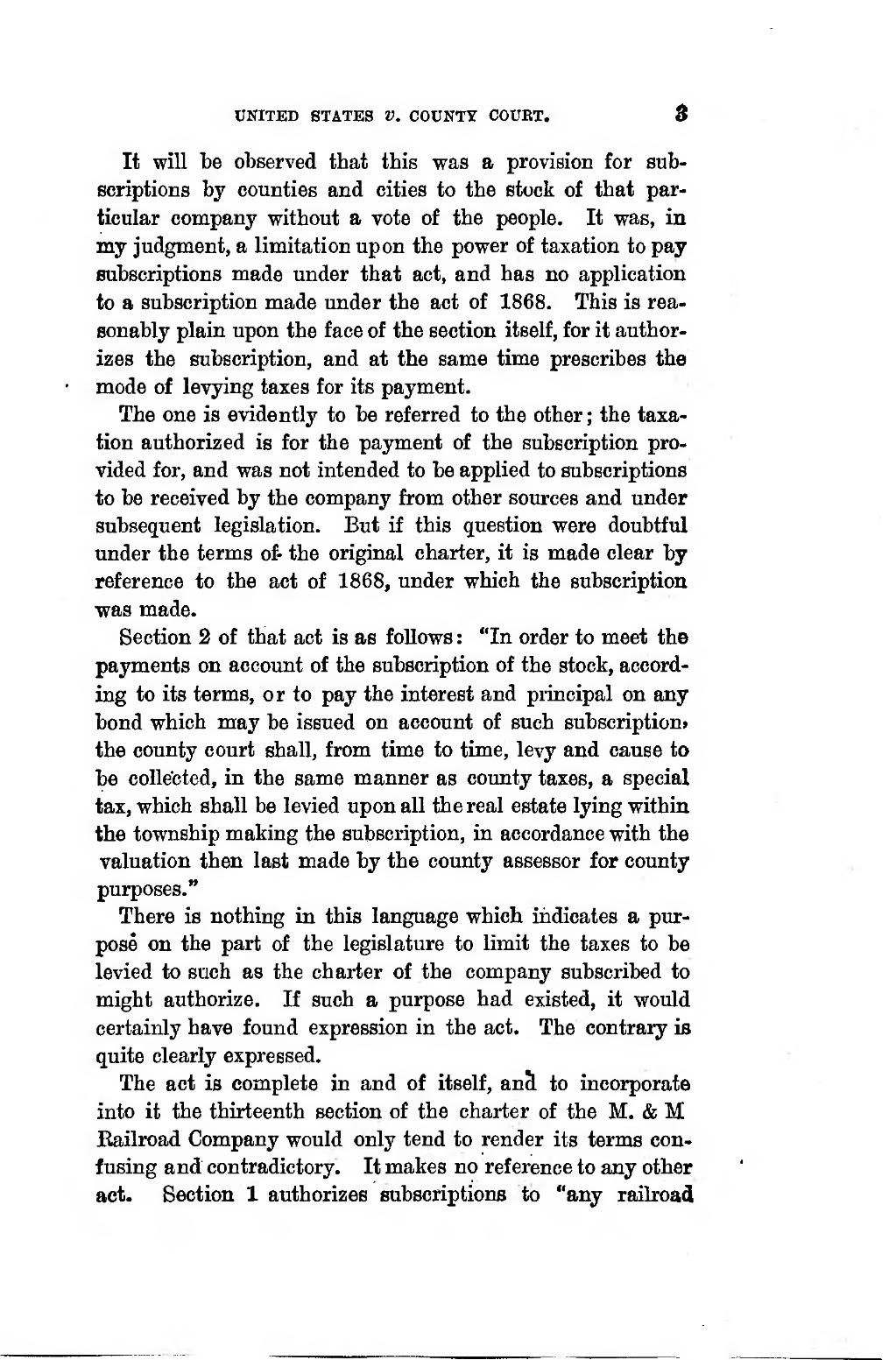UNITED STATES V. COUNTY COUET. S �It will be observed that this was a provision for sub- scriptiona by counties and cities to the stock of that par- ticular eompany without a vote of the people. It was, in my judgment, a limitation up on the power of taxation to pay subscriptions made under that act, and has no application to a subscription made under the act of 1868. This is rea- sonably plain upon the face of the section itself, for it author- izes the subscription, and at the same time prescribes the mode of levying taxes for its payment. �The one is evidently to be referred to the other ; the taxa- tion authorized is for the payment of the subscription pro- vided for, and was not intended to be applied to subscriptions to be received by the eompany from other sources and under subsequent legislation. But if this question were doubtful under the terms of- the original charter, it is made clear by reference to the act of 1868, under which the subscription was made. �Section 2 of that act is as foUows : "In order to meet the payments on account of the subscription of the stock, accord- ing to its terms, or to pay the interest and principal on any bond which may be issued on account of such subscription» the county court shall, from time to time, levy and cause to be coUected, in the same manner as county taxes, a special tax, which shall be levied upon ail the real estate lying within the township making the subscription, in accordance with the valuation then last made by the county assessor for county purposes." �There is nothing in this language which indicates a pur- pose on the part of the legislature to limit the taxes to be levied to such as the charter of the eompany subscribed to might authorize. If such a purpose had existed, it would certainly have found expression in the act, The contrary is quite elearly expressed. �The act is complete in and of itself, an^ to incorporate into it the thirteenth section of the charter of the M. & M Eailroad Company would only tend to render its terms con- fusing and contradictory. It makes no reference to any other act. Section 1 authorizes Bubscriptions to "any railroad ����
